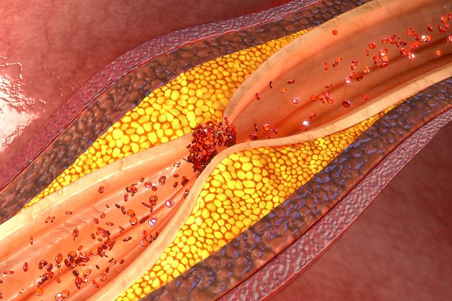The rupture or erosion of atherosclerotic deposits (plaques) piling up in the inner layer of arteries exposes material to the blood stream that stimulates the adhesion and aggregation of blood platelets ( and the subsequent formation of thrombi) which can precipitate heart attacks and ischemic strokes. Several proteins play key roles in this complex process, including receptors on the platelet surface that bind to plaque collagens. Professor Wolfgang Siess and his colleagues at LMU‘s Institute for Cardiovascular Prevention (IPEK) have now shown that drugs which are used for the treatment of certain forms of leukemia specifically inhibit the formation of atherosclerotic plaque-triggered thrombus formation – and they do so more effectively than the agents currently employed for this purpose. Their findings were published in Blood.
Jamming the signal
The formation of blood clots in atherosclerotic arteries results in myocardial infarction and stroke. IPEK scientists now demonstrate that low doses of agents developed to treat leukemia can selectively inhibit atherosclerotic plaque-induced thrombus formation.

